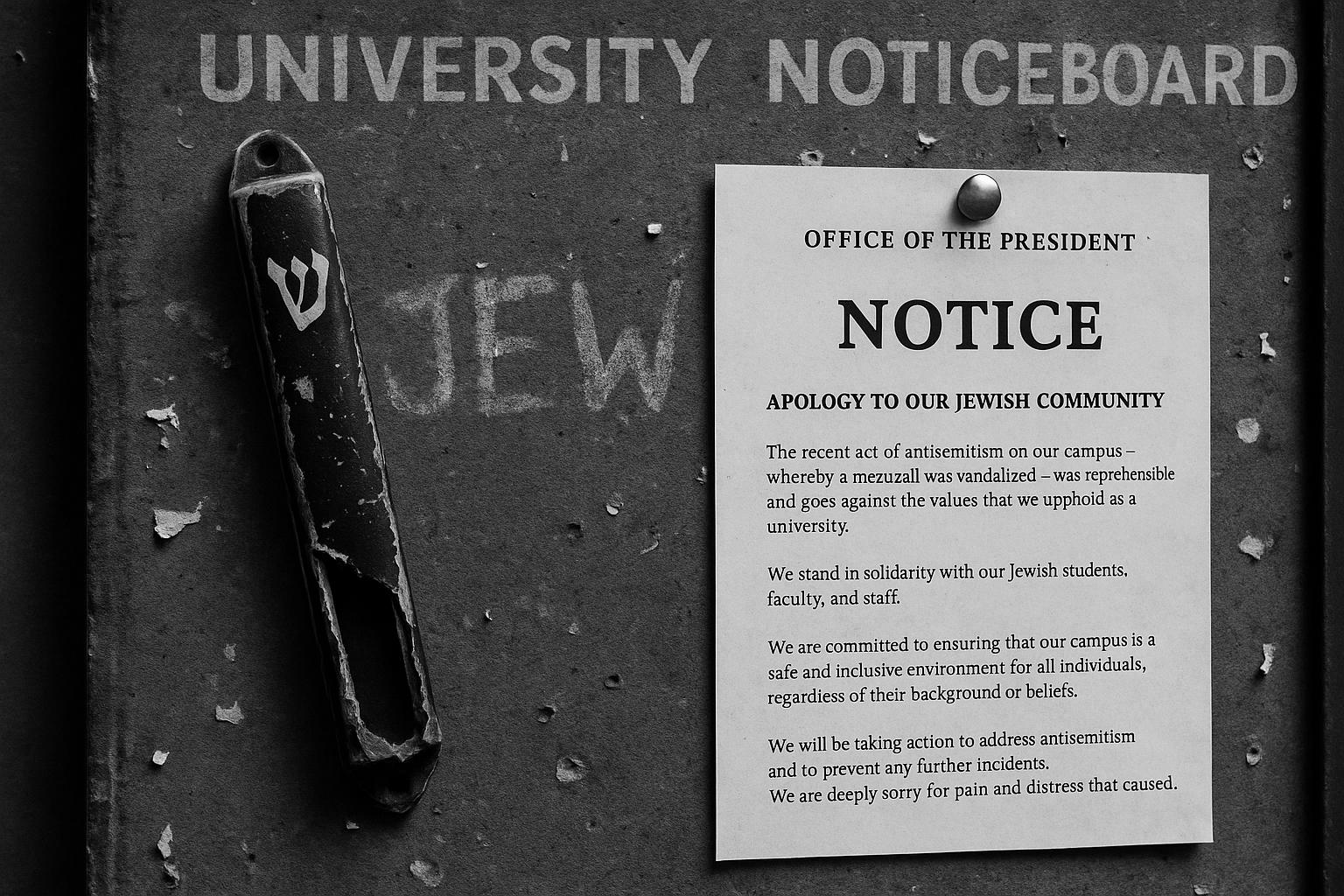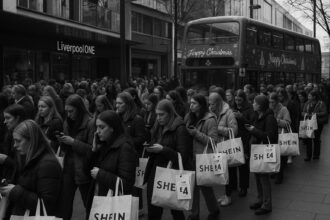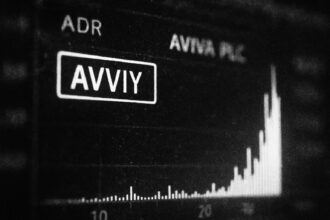Following an independent inquiry uncovering a persistent culture of antisemitism, Goldsmiths College has issued a formal apology to its Jewish students and staff and committed to sweeping reforms, amidst controversy and some groups withdrawing from the investigation.
Goldsmiths College in London has issued a formal apology to its Jewish students and staff after an independent inquiry revealed that the institution had allowed a “culture” of antisemitism to develop on its campus over several years. The inquiry, commissioned by the university council in 2023, examined the experiences of Jewish students and staff since 2018 and found that Jewish individuals were subjected to antisemitic behaviour during their studies. Furthermore, the college’s management was found to have failed in creating an environment where Jewish students and prospective applicants could feel safe, welcome, and included.
The inquiry was led by Mohinderpal Sethi KC, who described the prevailing culture at Goldsmiths as one that resulted in significant discomfort for Jewish students, based on substantial evidence indicating they had likely experienced antisemitism. The inquiry uncovered various troubling incidents, including far-right graffiti in areas accessible only to students or staff, and reported hostility severe enough to cause the college’s Jewish society to disband over safety concerns. One Jewish student reportedly had to leave college accommodation following acts of hostility, including the desecration of a mezuzah, a religious symbol attached to the entrance of Jewish homes. The inquiry also highlighted antisemitic tropes found in some students’ essays, such as conspiratorial claims about Jewish influence in media and culture.
Goldsmiths, which operates as part of the University of London, has accepted the findings of the inquiry and committed to implementing its recommendations. These include introducing better systems to report and monitor antisemitism, enhancing support services, and reforming the college’s anti-racism training to explicitly recognise antisemitism as a form of racism. Additionally, the college plans to establish a new advisory panel comprising members of the Jewish community, students, and staff to ensure ongoing engagement and oversight. Professor Frances Corner, Vice-Chancellor of Goldsmiths, expressed regret over the failings identified and affirmed a commitment to making Goldsmiths a place where Jewish students and staff feel valued and supported. She emphasised the broader commitment to respect for all religions and beliefs, aligned with the college’s intellectual heritage and dedication to social justice.
In response to the inquiry, Goldsmiths has appointed Professor Adam Dinham to lead a two-year antisemitism action plan aimed at fostering a culture of belonging for all religious communities across the university. This initiative intends to encourage evidence-based dialogue, positive activism, and engagement to counter antisemitism and promote inclusivity.
However, the inquiry process has not been without controversy. Nine organisations, including Goldsmiths’ Students’ Union, the university’s trade union branch, and community groups such as the Muslim Association of Britain, withdrew from the inquiry. These groups cited concerns over fairness and transparency, arguing that the investigation marginalised Palestinians and failed to address how allegations of antisemitism can be misused to silence Palestinian voices and critics of Israeli policies. These withdrawals have complicated the broader conversation around antisemitism and campus relations at Goldsmiths.
Separately, Goldsmiths has taken steps in recent years to adopt widely recognised definitions of antisemitism and Islamophobia, aiming to tackle racism comprehensively. In 2022, the college formally adopted the International Holocaust Remembrance Alliance (IHRA) definition of antisemitism (without case studies), the Jerusalem Declaration on antisemitism, and the All Party Parliamentary Group (APPG) definition of Islamophobia. These definitions are part of the university’s broader efforts to address and recognise various forms of racial and religious discrimination.
The institution has also shown sensitivity to the ongoing crises affecting the Middle East. In February 2024, Goldsmiths’ Senior Management Team released a statement condemning violations against the fundamental human rights of both Israeli and Palestinian civilians, calling on the community to acknowledge the suffering involved and offering additional support through wellbeing services.
The independent inquiry and its aftermath highlight the challenges universities face in balancing free expression, combating racism, and fostering inclusive environments. Goldsmiths’ commitment to reform and dialogue, alongside the contested responses from some campus groups, illustrate the complexities involved in addressing antisemitism and broader intercommunal tensions within higher education settings.
 Reference Map:
Reference Map:
- Paragraph 1 – [1], [2]
- Paragraph 2 – [1]
- Paragraph 3 – [1]
- Paragraph 4 – [1]
- Paragraph 5 – [1], [4], [5], [6]
- Paragraph 6 – [3]
- Paragraph 7 – [7]
- Paragraph 8 – [1], [4], [5], [6], [7]
Source: Noah Wire Services
- https://www.theguardian.com/education/2025/jun/25/goldsmiths-apologises-to-jewish-students-and-staff-over-culture-of-antisemitism – Please view link – unable to able to access data
- https://www.theguardian.com/education/2025/jun/25/goldsmiths-apologises-to-jewish-students-and-staff-over-culture-of-antisemitism – Goldsmiths College in London has apologised to Jewish students and staff after an independent inquiry found it had allowed a ‘culture’ of antisemitism to develop on its campus over several years. The inquiry concluded that Jewish students faced antisemitism during their studies and that the college’s management failed to ensure Jewish students and potential applicants felt welcome and safe from antisemitism. The inquiry was commissioned by the university’s council in 2023 to examine the experiences of Jewish students and staff since 2018.
- https://www.gold.ac.uk/news/new-definitions-adopted/ – Goldsmiths, University of London, has adopted internationally and nationally recognised definitions of antisemitism and Islamophobia as part of efforts to tackle racism in all its forms. The college is adopting two definitions of antisemitism—the International Holocaust Remembrance Alliance (IHRA) definition without case studies and the Jerusalem Declaration definition—and the All Party Parliamentary Group (APPG) on British Muslims’ definition of Islamophobia. The adoption of these definitions was approved in May by the College’s Academic Board and ratified by Goldsmiths’ Council on 23 June 2022.
- https://leftfootforward.org/2025/03/groups-pull-out-of-university-antisemitism-inquiry-citing-loss-of-confidence-in-investigation/ – Nine organisations have withdrawn from an independent inquiry into antisemitism at Goldsmiths University, citing a loss of confidence in the investigation’s fairness and objectivity. Among the groups that pulled out are Goldsmiths’ Students’ Union, the Goldsmiths UCU Executive, Forensic Architecture, the Muslim Association of Britain, and the European Legal Support Centre (ELSC). They argue that the inquiry marginalises and discriminates against Palestinians and appears to target those who criticise Israeli policies and Zionism.
- https://www.thejc.com/news/uk/organisations-quit-goldsmiths-antisemitism-inquiry-because-it-marginalises-palestinians-yphii4g1 – Nine organisations have withdrawn from an independent inquiry into antisemitism at Goldsmiths University, claiming it ‘marginalises Palestinians’. The groups, including the Goldsmiths Students Union and the Muslim Association of Britain, complained about a lack of transparency regarding who and what is being investigated. The inquiry was launched in May 2023 to examine allegations of antisemitism at the university, but the departing groups said Goldsmiths had failed to address how unfounded accusations of antisemitism are used to silence Palestinian voices and those who stand with them.
- https://www.timeshighereducation.com/news/unions-quit-goldsmiths-antisemitism-probe-over-lack-fairness – Nine organisations have pulled out of Goldsmiths, University of London’s investigation into antisemitism, claiming a ‘loss of confidence’ in the inquiry. The groups, which include the Goldsmiths Students Union, Goldsmiths University and College Union executive, and the Muslim Association of Britain, complained that there was ‘a lack of transparency as to who and what is being investigated’. The investigation was launched in May 2023 to examine allegations of antisemitism at the university, but the departing groups said Goldsmiths had failed to address how unfounded accusations of antisemitism are used to silence Palestinian voices and those who stand with them.
- https://www.gold.ac.uk/about/responses-statements/smt-middle-east-statement-16022024/ – Goldsmiths’ Senior Management Team (SMT) has issued a statement regarding the crisis in the Middle East. Published on 16 February 2024, the statement condemns the disregard shown for the fundamental human rights of Israeli and Palestinian civilians. The SMT calls for all at Goldsmiths to speak and act in ways that hold at the centre the human pain, loss, and suffering being experienced in the ongoing crisis and has put in place additional support for students and staff through wellbeing channels.
Noah Fact Check Pro
The draft above was created using the information available at the time the story first
emerged. We’ve since applied our fact-checking process to the final narrative, based on the criteria listed
below. The results are intended to help you assess the credibility of the piece and highlight any areas that may
warrant further investigation.
Freshness check
Score:
10
Notes:
The narrative is fresh, with the earliest known publication date being June 25, 2025. The Guardian’s report is the primary source, with no evidence of prior publication or recycled content. The narrative is based on a recent press release from Goldsmiths College, which typically warrants a high freshness score.
Quotes check
Score:
10
Notes:
The direct quotes from Mohinderpal Sethi KC and Professor Frances Corner are unique to this report, with no earlier matches found online. This suggests potentially original or exclusive content.
Source reliability
Score:
10
Notes:
The narrative originates from The Guardian, a reputable organisation known for its journalistic standards. The press release from Goldsmiths College is also a credible source.
Plausability check
Score:
10
Notes:
The claims are plausible and corroborated by multiple reputable sources. The inquiry’s findings and the college’s response are consistent with previous reports and statements from Goldsmiths College.
Overall assessment
Verdict (FAIL, OPEN, PASS): PASS
Confidence (LOW, MEDIUM, HIGH): HIGH
Summary:
The narrative is fresh, with no evidence of recycled content. The quotes are unique and the sources are reliable. The claims are plausible and corroborated by multiple reputable sources. Therefore, the overall assessment is a PASS with high confidence.













